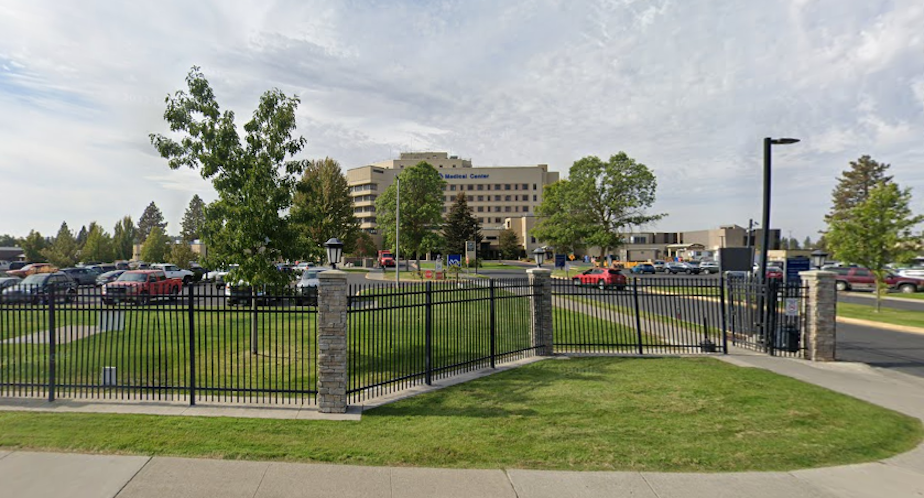More delays and technical glitches plague Eastern Washington VA medical centers

On Monday, VA medical centers across the Inland Northwest encountered a massive slowdown caused by an update to a new electronic medical record system, prompting long wait times.
VA Press Secretary Terrence Hayes confirmed that changes made to a recently implemented electronic record system by the Department of Defense interrupted "services that provide connectivity to the network.”
But Spokesman Review reporter Orion Donovan-Smith says these issues are just one symptom of a larger problem.
Donovan-Smith has been covering the new electronic health record system at the VA for months. He joined Soundside to give an update on the latest problems surrounding the new system.
The VA has been testing the new Oracle Cerner electronic health record system at locations in Eastern Washington and in Columbus, Ohio. Following the launch of the system in Spokane in 2020, several patients experienced delayed care, missed diagnoses, and missing medication due to kinks in transferring from the old system.
In response to those issues, VA Secretary Denis McDonough stated last year that the VA would not be expanding the system elsewhere until those issues were fixed.
Despite that, the VA is planning on rolling it out at the VA Medical Center in Ann Arbor, Michigan this coming July, with a potential launch date of mid 2024 for Puget Sound VA Medical Center.
Donovan-Smith explained that the latest problems stem from staffing shortages.
Sponsored
"In Spokane, for instance, when they started out, VA authorized hiring extra staff because they expected — as usual when they do these transitions — that their productivity would go down for a while. That is, each provider would be seeing fewer patients in a given day."
Unfortunately, that productivity hasn't improved, due to the issues with the new electronic health record system.
And budget issues aren't just coming from the staffing side, Donovan-Smith said. The new system doesn't allow correct billing of private insurance, so revenue has gone down even further.
Veterans who can't see providers at the VA have been referred out to private hospitals and clinics, "where health care is both more expensive, and often, they have to wait longer to see a doctor," Donovan-Smith said.
The most recent issue the electronic health record system has come up against though is long wait times, but not because of an outage. Rather, the system slowed down due to connectivity problems resulting from an update, Donovan-Smith said.
Sponsored
"That's because the Department of Defense shares a database with the VA so that their systems can be very similar," he explained. "And the idea is that they would communicate with each other better. But ... often when the new system, which is being deployed now in Defense Department facilities, when it's updated, that causes sort of ripple effects on the VA side. And so when providers were using this system, every time they clicked a button, they had to wait long periods —minutes sometimes — for the next page to load. And you can imagine that just slows down their work considerably."
Members of Congress from Washington state have been following the issue. Sen. Patty Murray and Rep. Cathy McMorris Rodgers, who represents Spokane, have been keeping some pressure on the VA and Oracle regarding the electronic health record system's performance problems.
However, lawmakers haven't yet proposed a clear solution to the VA, Donovan-Smith said.
"Lawmakers have consistently said, 'This is a problem, you need to fix it.' But what exactly fixed means hasn't really been defined."
You can listen to the entire conversation by clicking on the link above.





